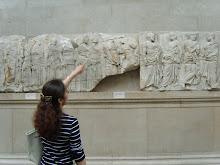A review of Beth Henley’s Crimes of the Heart:
Patriarchal and Racial Absurdity
(aka. Understandable Absurdity and Unacceptable Absurdity)
Before proceeding, I want to pay reverence to the work of an attractive playwright, Beth Henley. Of all the American dramas I’ve read till now for this semester, this one of Beth Henley’s was most comfortable for me to read at one glance. As compared to other dramas I read earlier, CoH has more moderate and easier dialogues with which protagonists communicated. I, as a woman, could share some emotional depth with those three sisters. Of course, the sisters are in different situations and their attitudes run cross to each other in some cases, so I feel empathy with them separately. This play has many things to be discussed, but this time I’ll choose just two parts about patriarchal and racial absurdity because I am to develop discussion in only a page.
Lenny as the eldest girl retains certain modulation of attitude toward the conventionally patriarchal order to which she has been accustomed. Her recognition of Old Granddaddy’s devotion to the girls (264) shows it well. We, however, become to know that all of three sisters were victims of patriarchal ideals in a sense. Lenny, due to her deformed ovary, was psychically branded as an unproductive woman, so has been regarded to make useless wife. Meg, who seems to be impertinent and liberal, was also a victim of [grand] paternal expectation as seen from Act Three. There she says “he’s just gonna have to take me like I am” and “finally I get my wits about me, and he conks out” (278, 279). Babe, let alone commenting about her macho/bad husband, was victimized by patriarchal convention, which has bound women with typical classification and stereotyped wisdom. Old Granddaddy “remarked how Babe was gonna skyrocket right to the heights of Hazlehurst society and how [bold/wild] Zackery was just the right man for her whether she knew it now or not” (240-41). Even Old Granddaddy, represented a good patriarch, dominated his granddaughters’ lives and served as causes of their miseries. There seems to be no need to take Zackery or the girls’ bastard father into discussion because we already saw authoritative patriarch, good or bad, exerted harmful influence upon women.
I declare the most serious defect of this drama is the dealing with the relationship between Babe and Willie Jay. Babe is twenty-four and the black boy Willie is fifteen. Consequently Babe had sex with a Juvenile and their intercourse is plainly illegal. Babe’s excuse of loneliness or her after-protection for Willie against Zackery and Hazlehurst society cannot compensate for her deed. Nevertheless, the play justifies Babe’s situation and makes readers sympathise with her. Its absurdity becomes clear when we consider other similar situations. Let us think of other three cases of intercourses: between adult black man and young white girl; between adult white man and young black girl; between adult black woman and white young boy. What do you think of those? I might not have to discuss further, and probably some definite answers can be supposed. In the strict sense, the defect I proposed would not be imputed to Henley, but to the social.
Family relation, that is, the confirmation of the strong ties among sisters, and self-awakening/self-realization of them as independent and positive/active women are partial virtues of the play. Simultaneously we cannot ignore the uneasiness that the play gives us, though.
Brit...
(Written on 31st October, Handed out on 3rd November)


No comments:
Post a Comment